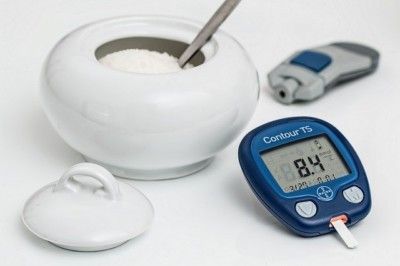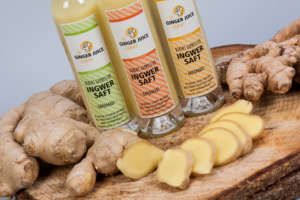Live healthier with less sugar
Sugar can be found in muesli, spreads, and even in ready meals. The consequence of too much sugar can be beside diabetes, Adipositas, also heart and cycle illnesses. If you want to do without sugar or reduce the amount, sugar substitutes are a good choice. But are they also healthy and an alternative?
Can sugar be replaced by sugar substitutes?
Sugar is often at the forefront of the diet not only of adults, but also of children. But the reputation of sugar is now tarnished for good reasons. From a health point of view, the consumption of sugar can be responsible for obesity, diabetes and cardiovascular diseases.
Too much sugar can make our skin look old. That’s why reputable societies advise reducing sugar to an intake of less than 10% of usual consumption. If you have an energy requirement of 2000 calories, for example, you could eat up to 50 grams a day. But watch out!
It’s not just about the spoonful of sugar in your coffee. Hidden sugar in food can be found in almost all pre-made dishes. Not only in ketchup and packet soups, but also dressings, sauces or canned vegetables.
Food manufacturers are required by law to declare the sugar content in products. However, there are also alternatives. Natural sugar substitutes such as birch sugar, Xucker and stevia.
What can a sugar-free diet bring?
Our body reacts illogically to sugar. Too much sugar causes blood sugar levels to skyrocket. In return, our brain is rewarded. When sugar is eaten, so-called messenger substances are released that give a pleasant feeling.
This is exactly the condition that makes it hard to give up sugar then. The industry has reacted to this and uses it to make its products more flavorful. If you do without sugar completely for a few days, you can get a headache due to the change in metabolism.
In addition, cravings set in. If we keep this up for a few weeks, our body will have a different sense of taste. So little sugar brings many health benefits.
The best sweet additives
Many names have sweeteners that can replace sugar. Thus, sweetening ingredients, types of sugar, sweeteners and sugar substitutes are offered. One can lose the overview with the multitude. Thus, in addition to single and double sugars such as sucrose (household sugar), fructose (fruit sugar) or glucose (dextrose) are used. There is a difference between sweeteners and sugar substitutes.
Sweeteners
Sweeteners have a much higher sweetening power than sugar. The sweeteners that are included have almost no calories. They are often found in reduced-calorie foods, such as light drinks. As table sweetener it is used in the form of tablets for sweetening dishes.
So-called sugar substitutes are also counted as sweeteners. Sugar alcohols are used in an insulin-dependent way. Therefore, they were still a few years ago in diabetic foods verwandt. These substances are much lower in calories. These substances also do not promote tooth decay, so they are often found in „sugar-free“ chewing gum or candies.
Natural alternatives to sugar
Besides sweeteners and sugar substitutes, there are also other alternatives. Here we can mention coconut blossom sugar, which is a natural sugar alternative and has not been industrially processed. It has the same sweetening power as sugar. However, this sugar does not save calories. In addition, this sweetness has a certain taste of its own.
Honey is also a natural alternative. Honey is a natural product and has several advantages over refined household sugar. It should be remembered, however, that honey consists of about 80% sugar. This means that it also has a lot of calories. But since it has a higher sweetness intensity, you need less to sweeten drinks and food. With honey one should consider that it is used sparingly.
What are sugar substitutes?
Under it one understands sugar alcohols (Polyole). These are sugar-like compounds that sweeten comparatively with table sugar, yet often have lower sweetening power. Because they have fewer calories, there is little effect on blood sugar levels.
The sugar substitute erythritol is a sugar alcohol, which is also found in small natural amounts in fruit or mushrooms. The food industry obtains the sugar substitute through fermentation, which is a fermentation process. In this process, glucose or saccarose transforms into erythritol with the increase of helper or fungi.
The sweetness of this substance is only about 70% of household sugar, so it is a little less. Erythritol has a mild sweet taste. With its cooling effect in the mouth, the sweetener is used in the production of candies and chewing gums. The sugar substitute has a glycemic index of zero, which has a beneficial effect on blood glucose levels. Another advantage of erythritol is that it is well tolerated.
Finally, it should be pointed out that not only the diet affects the blood sugar level, but also physical exercise. A good explanation of this can be found for example in a NDR publication.
Conclusion:
Sugar may make happy, but in many cases it makes you fat. It not only promotes obesity, but also diabetes. Both diseases are not harmless. Moreover, it has no added value for the body – it is also referred to as „empty calories“. If one wants to snack, one should switch to sugar-free products.









